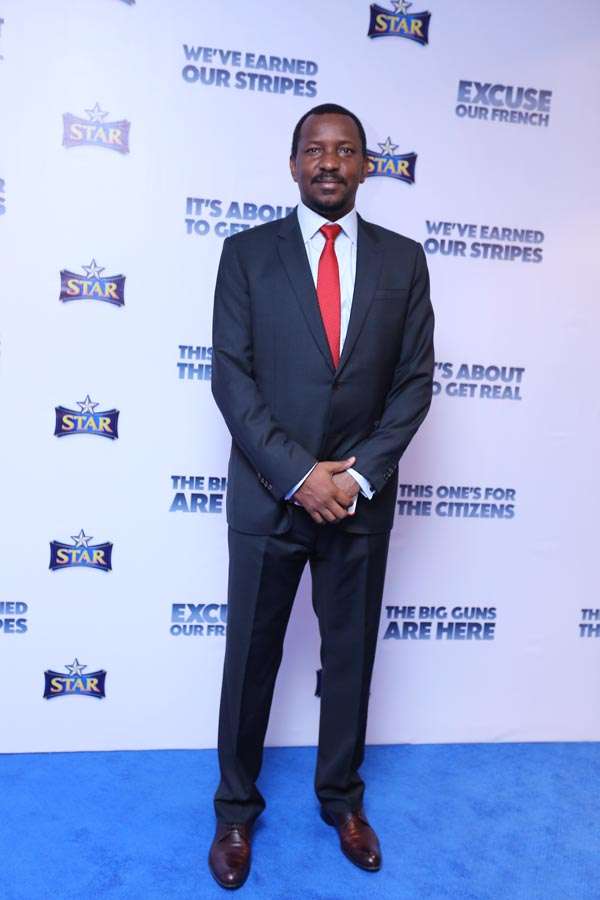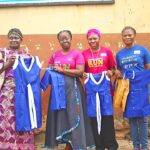BY FRED EDOREH
From the performances of our national teams in international competitions, especially in the past four Olympic Games, to all the shenanigans that marked various ministerial administrations of sports from 2015 into 2024, it was obvious that the Nigerian sports establishment needed a rejig.
Perhaps, the abysmally poor and shameful outing of Team Nigeria at the Paris 2024 Olympic Games jolted the nation, and determined President Bola Ahmed Tinubu’s swift, bold and inspiring response to scrap the Ministry of Sports and resuscitate the National Sports Commission structure.
Not entirely new in the annals of Nigerian sports, a majority of sports administrators, managers, coaches, veteran athletes and sports businessmen have voiced their preference for it.
For one, it compels its composition with professionals in various fields of sports for more robust designs and rigorous evaluation of programmes, eliminates the red tapes of the ministry system and challenges its leadership to creativity and resourcefulness, with their sustenance anchored on the principle of performance.
The National Sports Commission system is a pseudo-corporate management system, requiring less politics, clear professional approach to operations and constructive actions for the delivery of targets and goals, as against the ministry system in which the authorities feel no challenge because they have nothing to lose in whatever situation.
Apart from the abysmal performances from London 2012 Olympics to Paris 2024, the non-registration of Blessing Okagbare and Oghene Egwero for 100m at the Doha 2019 World Athletics Championships, the barring of over 10 Nigeria athletes from participating in the Tokyo 2020 Olympic Games and their expulsion from the Games Village over non-fulfilment of doping requirements, the non-registration of Favour Ofili for 100m in Paris, the scandal of the delayed refund of over-payment to the Athletics Federation of Nigeria by World Athletics, the toxic relations between the ministry and many of the federations which often resulted in faceoffs with international federations, and the very poor state of our sports facilities such that there appears to be only one venue that can host a game of the Super Eagles in the whole of Nigeria, the National Stadiums in Abuja and Lagos being out of it, there had been very many other scandalous developments that undermined Nigerian sports but which were technically papered away in bureaucracy.
It is therefore fitting that President Tinubu came to terms with all these and called a stop. Also very fitting is the appointment of Mallam Shehu Dikko as Chairman of the resuscitated National Sports Commission to chart a new path for our sports.
A man of vision and ideas, with a mind for growth, Dikko has been around and with strong intent for the reformation of Nigerian sports.
A graduate of Quantity Survey, with Post Graduate Diploma in Management, Masters in Business Administration and various trainings, certificates and cognate experience in sports administration, marketing and management, he was a consultant to the House of Representatives Committee on Sports for several years, during which period he redesigned the structure of the National Sports Commission.
He had also distinguished his sports management practice with the organization of playing tours for clubs like Portsmouth, Manchester United and Kano Pillars.
He was part of the delivery of the major sponsorship of the Nigeria football league by Globacom, worth about $1m per season then, and when the politics of the league board constrained the flow of the deal, throwing up all manners of encumbrances against the domestic game, thus necessitating the creation of the League Management Company, he was called upon to serve as the CEO while Hon Nduka Irabor led the charge as Chairman, to give the league a new life.
Together, they not only revalued the league and renegotiated a new broadcast right of about $8m per annum, but also presented Nigerian sports fans exciting sights and sounds that increased, stadium attendance and the upticks of the league through effective live broadcast and mix media promotions that attracted many other brand sponsors and partners.
Their objective was clear, to drive sports as a contributor to the national GDP through sponsorships, endorsements, job creation, generation of enterprise and greater financial value and returns for clubs.
It was for this reason that the LMC struck a partnership with the Spanish LaLiga, culminating in the sponsorship of Nigeria league club chairmen to a hands-on club business training in Spain.
The tour tagged “Beyond 3 Points” which took them through Valencia, Barcelona and Madrid, was designed to enable the club owners, managers and the media understand first hand the business and economy of club football, beyond the mentality of winning at all cost.
Part of it was also the selection of an All-Star team from the Nigeria league sides to participate, for the first time, in the prestigious Trofeo Costa Del Sol football Tournament, for high level exposure.
Back in the home league, Dikko also focused on encouraging the club sides to develop a strong youth programme, with the aim of creating easy flow of young talents into the senior teams. A selection from the various sides were also taken by the LMC to various tournaments overseas.
These strategic initiatives brought to bear in the administration of the league were acknowledged as exemplary by the Confederation of Africa Football, earning Dikko a membership of the CAF Inter-Clubs Committee, membership of the FIFA Stakeholders Forum and also of the World League Forum, a convergence of the managers of the top leagues in the globe.
There is so much to celebrate about the contributions of Dikko to our sports, either as Former Manager of the FIFA Goals Project in Nigeria, Chairman of the Codes and Ethics Committee of the national teams, Chairman of the NFF Sponsorship and Marketing Committee, Second Vice President of the NFF, CEO of the LMC or his personal sports philanthropy as a businessman.
In his earlier service, he faced challenges, most especially from Sports Ministers, some of whose intentions were simply brazen, and also persons that inordinately felt entitled, even if that meant destroying the entire landscape of Nigerian sports. Perhaps, Nigerians can still recall the days of Dalung.
Thankfully, all that is history. Today, Nigeria is on the mark to pursue a new life for its sports and the question would be: Can Shehu Dikko deliver on the mandate of the National Sports Commission?
From my association and knowledge of him, my answer is an emphatic Yes. Apart from being very personable, decorous and organised, he is well schooled both in the technicalities, administration, management and marketing of sports. He has the requisite corporate background, contacts to brands, and with wide and deep relations in international sports politics.
A stickler for athletes welfare, he knows where the shoe pinches and well understands that something needs to be done to establish a strong funding base for our sports, besides the usual government budgetary system, to enable effective training and preparation of athletes and personnel.
He understands the imperative for the upgrade of existing facilities and the establishment of new ones, especially in the grassroots and in the corpus of school sports, as sine qua non to the development, growth and progress of our sports; that the sports federations have to be populated by experienced, professional and well meaning persons of capacity, and be run according to the rules of their international bodies and in compliance with best practices; that we must run our sports with clear plans and programmes, and not with the old deja vu attitude.
Dikko knows that the public will judge him by the successes of our sports teams, but I also know that he sets for himself the objective of using sports as a vehicle for the delivery of employment opportunities, youth re-orientation and empowerment, generation of enterprise, wealth creation and both local and foreign direct investments, in contribution to national economic growth.
He knows that he has been called to no mean task and I trust that he is equal to it. However, like in all things, he needs all the support: first from the sports community and the government, then the corporate world, the media and the public, as well as the prayers of all well meaning Nigerians.
*Fred Edoreh, an aide to the Governor of Delta State was a former Chairman of Sports Writers Association of Nigeria, Lagos chapter






